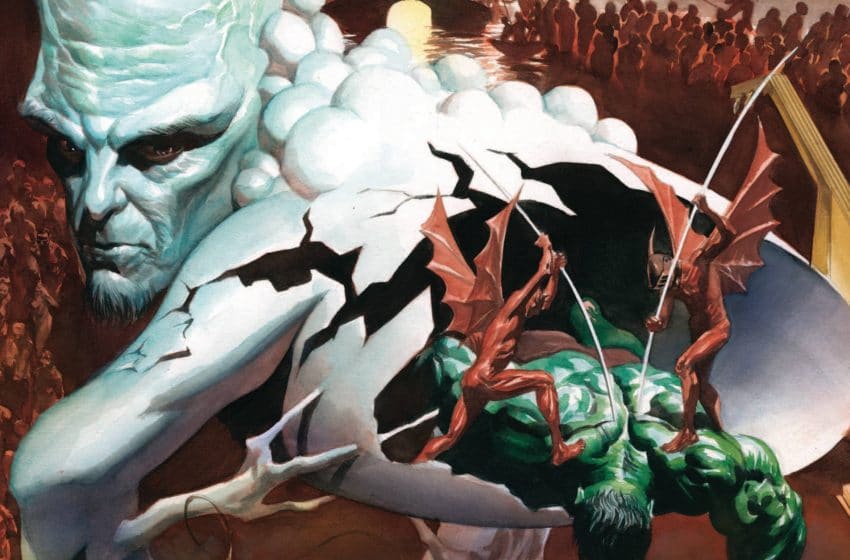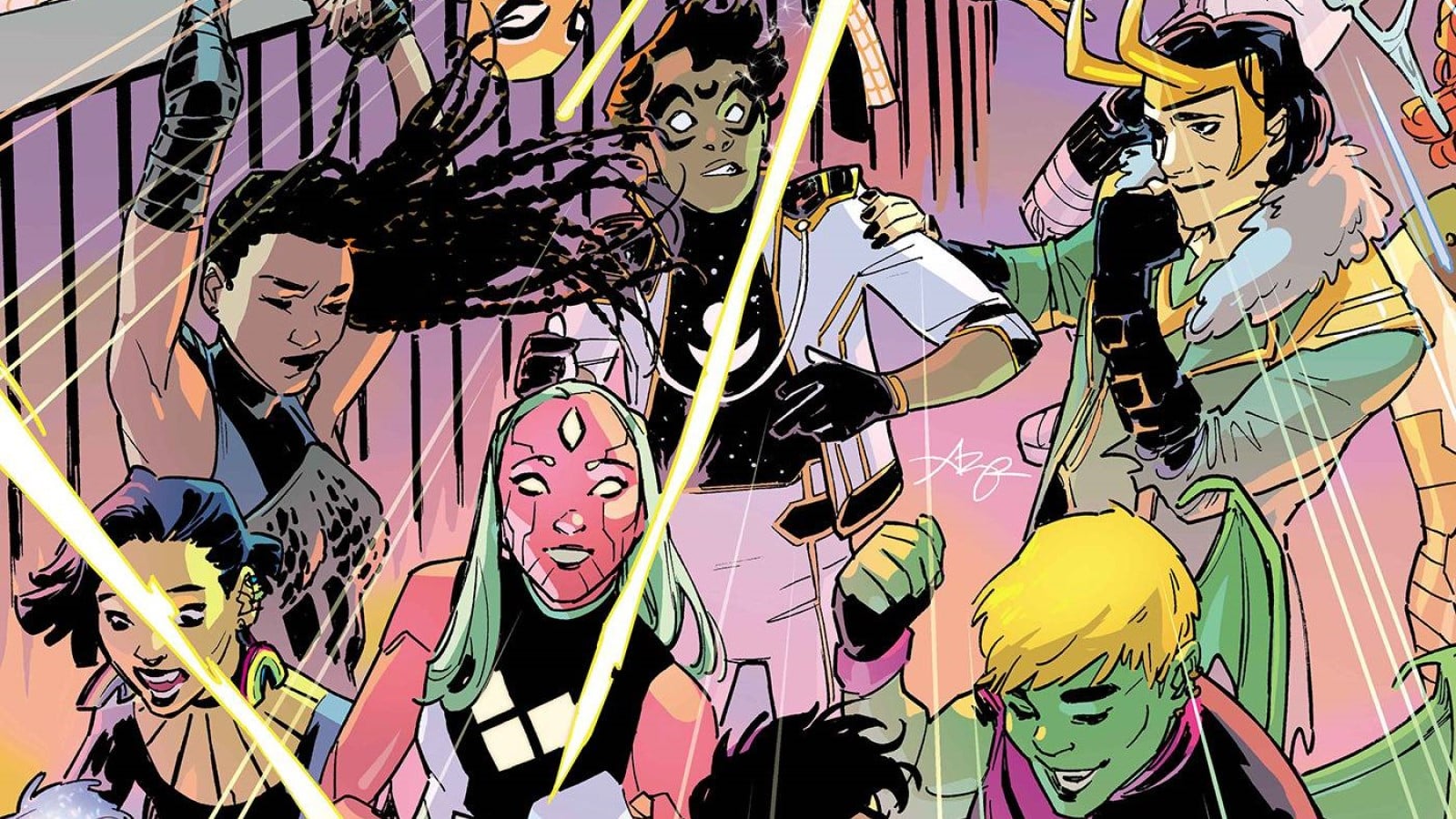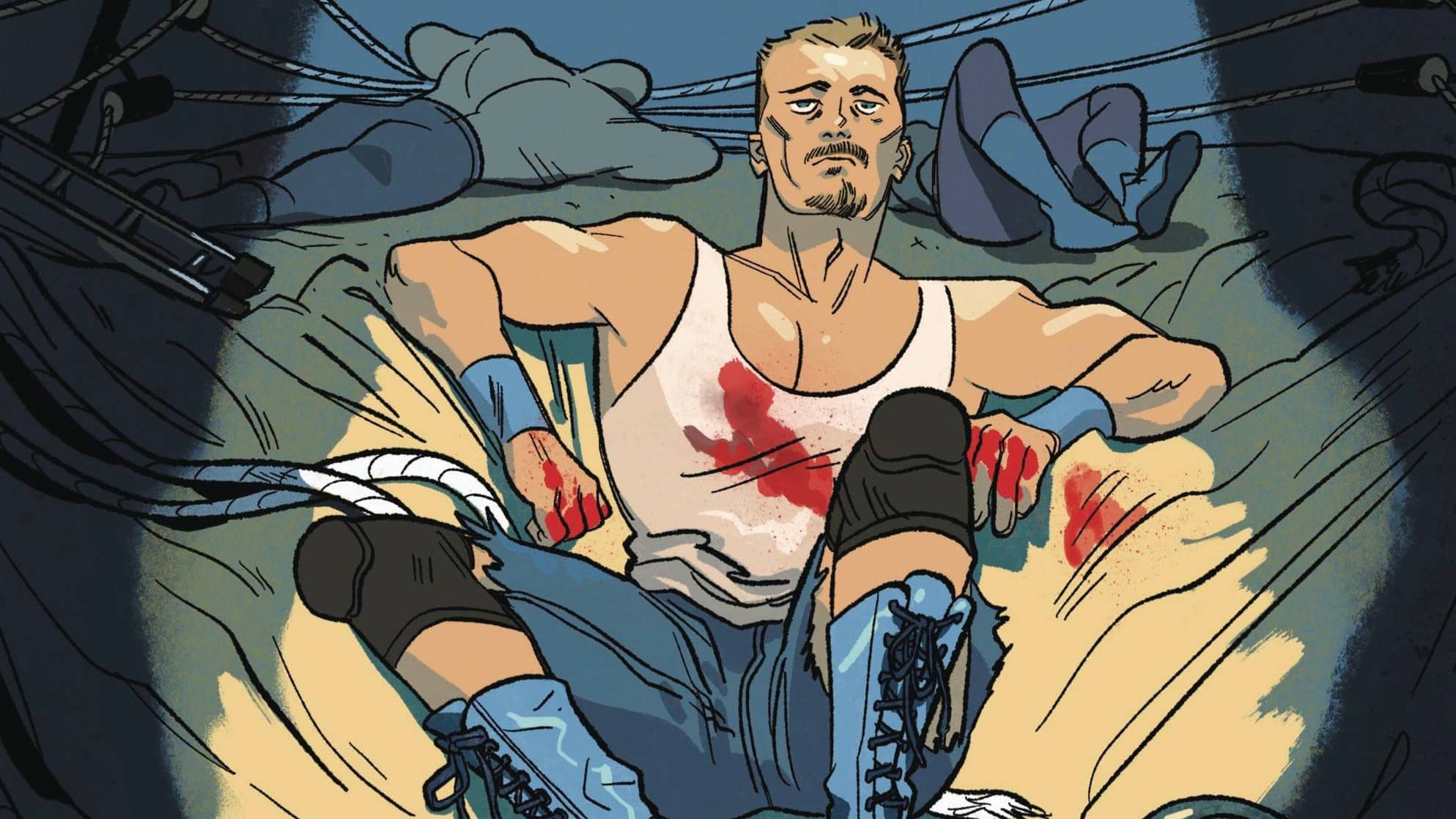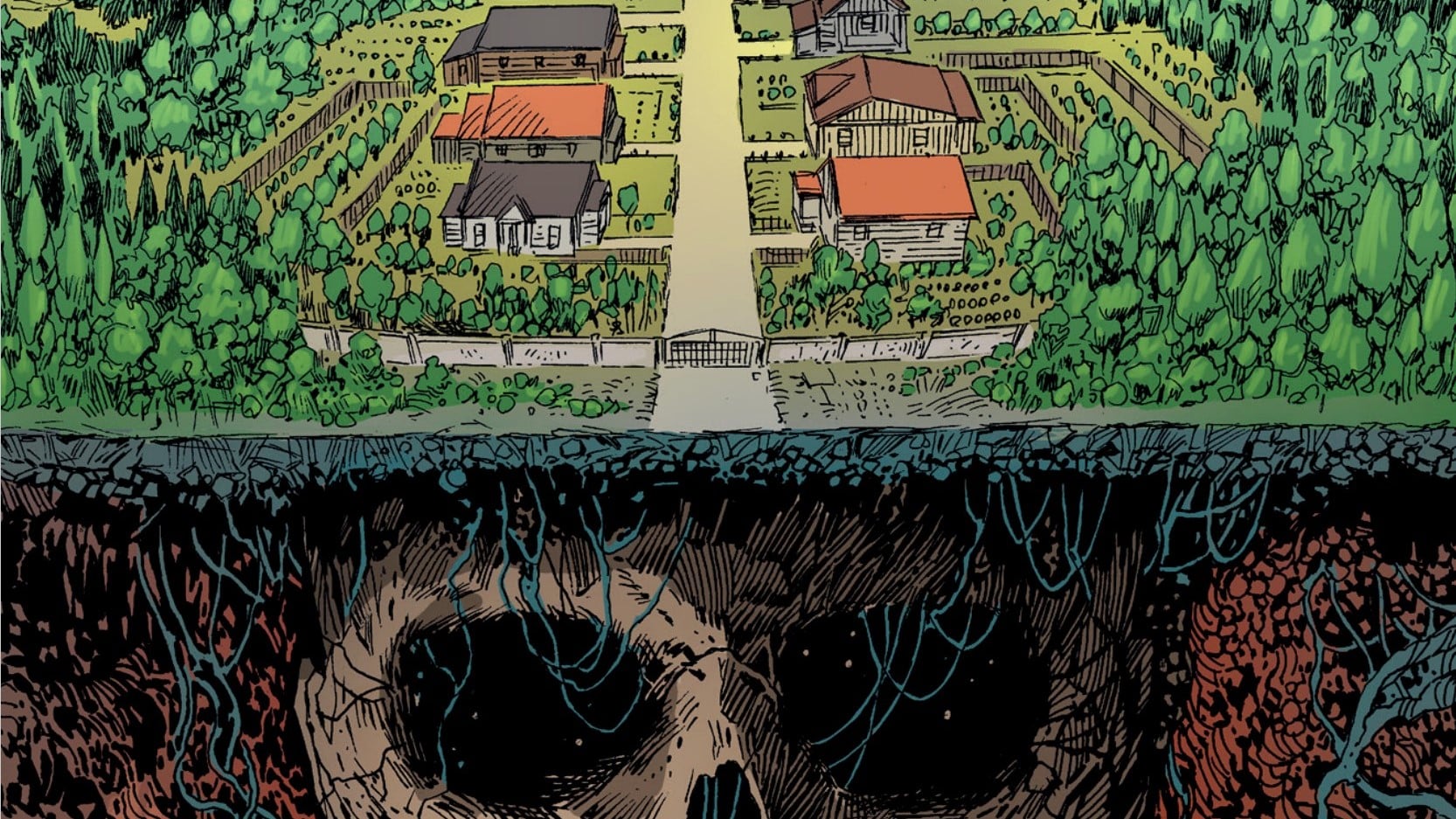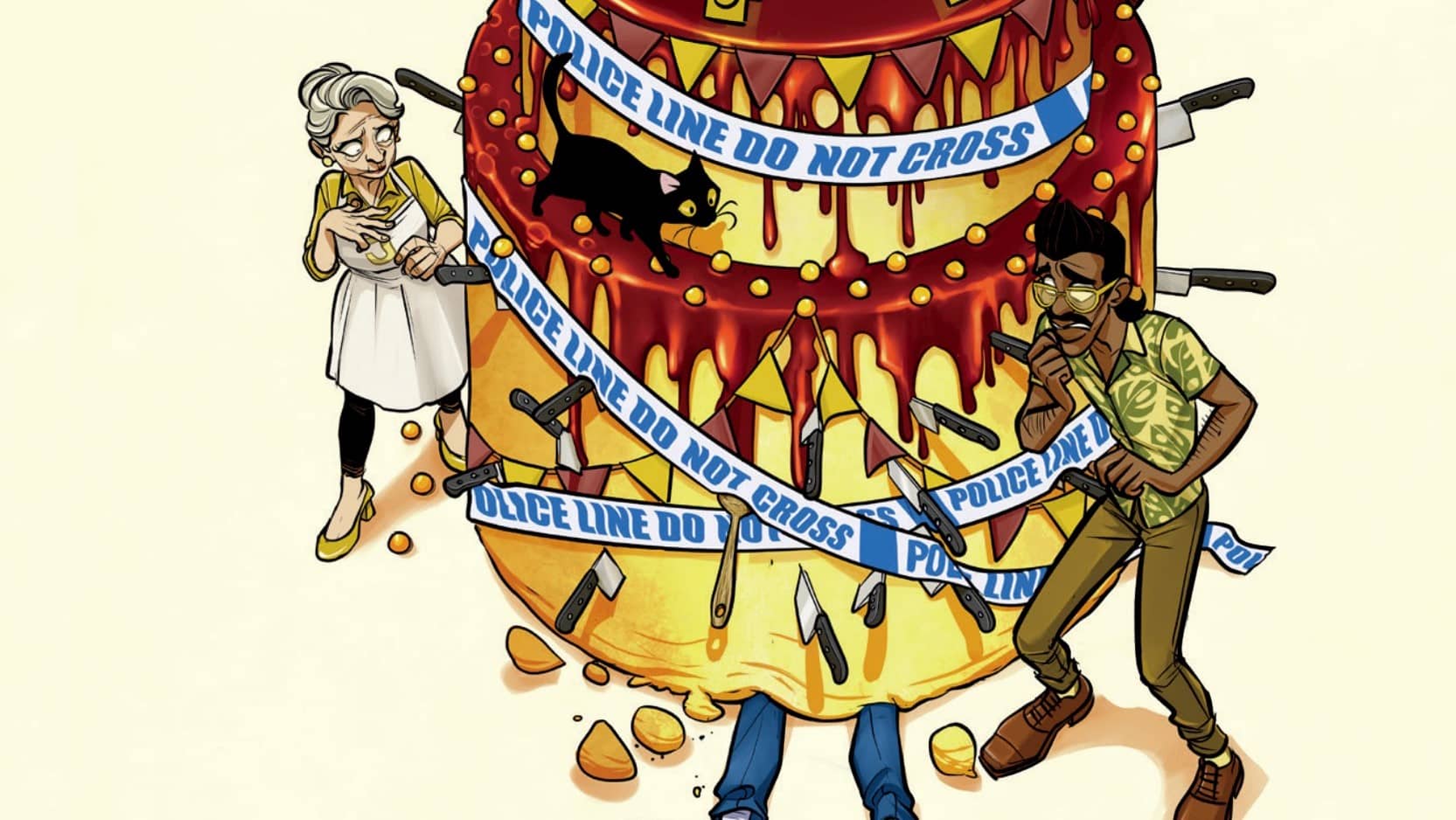The supporting cast of Immortal Hulk faces…consequences as the Leader tries to figure out what makes Banner tick. We present our discussion of Immortal Hulk #42 written by Al Ewing, art by Alex Lins, Adam Gorham, Rachael Stott, Joe Bennett, and Ruy Joé. Colors are by Chris O’Halloran and Paul Mounts, and letters are by Cory Petit.
Cori McCreery: Well holy heck, look who comes wandering back out of the wasteland after a bit away! So nice to see you Rob, I hope you enjoyed the present Zach left in your office.
Robert Secundus: The box pulses with a light I cannot describe, a color I have never before seen. It casts shadows on the wall that dance and writhe according to no known geometry. I fear opening it, that it might open me. So yeah, I guess it’s pretty good. I feel bad I didn’t get you or Zack anything.
“Consequences are unpitying. Our deeds carry their terrible consequences, quite apart from any fluctuations that went before—consequences that are hardly ever confined to ourselves.”

RS: Unfortunately, I don’t know much about George Eliot— the only 19th century novels I’ve read feature the handsome, clever, and rich or the ghostly, monstrous, and bloodthirsty. Farmers and Methodists aren’t my thing. But I can try to provide some context to the quote: a pastor is discussing the sins and temptations that arise in the novel with one of the central characters, an Arthur Donnithorne. Arthur asks: “surely you don’t think a man who struggles against a temptation into which he falls at last as bad as the man who never struggles at all?” The pastor responds that he does pity those tempted, and then the above. It doesn’t matter how culpable we are for some action; it doesn’t matter how hard we struggled against temptation; it doesn’t matter what pity someone might have for us; none of those things change the consequences of our actions. None of those things prevent an action from harming others. So you didn’t know that ruffling an asshole celebrity’s hair on your tv show would cause harm; so you tried kind of hard to resist the pressure to let the asshole celebrity guest host your sketch comedy program. Ok, great; you still contributed to the normalization of a monster, and those actions caused great harm. Maybe not to you, wealthy celebrity in your own right— but to many, many people.
It’s an interesting frame for this issue; the issue is a depiction of a series of consequences, the last act of a story, which we’re in now for this run, is devoted to consequences, and this run as a whole can be viewed as a story about consequences political, psychological, spiritual, and eternal.
CM: Man, does it feel good to see some actual consequences for some crappy people. What a relief that is compared to our current reality. Oh what a wonder it is to see consequences. But seriously, this issue was incredibly rife with consequences, and had very little content with the Hulk at all, including absolutely nothing of the two that are currently running around. What it did have, was the Leader and Banner, and the One Below All.
Consequences in the Supernatural World

RS: The Leader thought he was in control; The Leader thought he was smart enough to understand his devil’s bargain; The Leader thought that he could consume, and the consequence? He was consumed. Cori, what did you think of the Leader and what happened to him in this issue?
CM: Yummy yummy get in the ONE BELOW ALL’S tummy. I can’t say I saw this coming AT ALL. This was a twist on a twist and ho-boy was it impressive. It’s just so absolutely satisfying to see self satisfied pricks like the Leader actually get theirs. Like I know this isn’t good, that in the end the One Below All is actually the worse option here, but also I am delighted at seeing his smug face realize what was about to happen. He sold his soul, and is now paying for that transaction, and it’s glorious. How bout you Rob?
RS: For me, what was most horrifying was the moment after, when the Leader was no longer suffering, when he was reborn and embraced being consumed, because there was no longer any individual Leader to speak of. There’s a part of the Catholic mass (bear with me) where, as the materials for the eucharist are being prepared, the priest takes the goblet of wine and drips in a single, small drop of water. It’s a symbol of what is supposed to happen in the eucharist: people fall into the vast enormity of God and are lost in it. Those water molecules still exist in the wine, but they can never be recovered. We know they exist, but we see them be absorbed. That kind of loss of self in something incomprehensibly large has always terrified me. It’s infernal here, but it’s the same sort of thing. We know the Leader goes on in some way, but his will, his intellect, his soul, his personhood, his individuality has been entirely subsumed. An ironic end for one who so often destroyed the wills of others, imposed the powers of his intellect on them, and hoped to rule over all.
CM: Well that is certainly a lot more frightening. Kind of a hive mind situation with all of the various souls and lives the One Below All has consumed over time. One thing that always intrigues me about the Big Two, is how many unique representations of the Devil they both have. Over in the Distinguished Competition they have Neron, Blaze, Satanus, and Lucifer. In Marvel, you’ve got Mephisto, Dormammu, and now the One Below All among others. What do you make of all the varying takes on the Devil?
RS: I think part of it must have come down to the comics code, as I imagine explicit depictions of Literal Biblical Satan weren’t smiled open, and so replacement figures were needed— but I also think it reflects the Devil himself throughout history. There are so many Satans: the Satan of Job is an angelic prosecutor for God, trying the righteous; the Satan of Christian legend can be a folk-trickster, someone for the clever hero to outwit; or he can be a dangerous ally, someone to bargain with, who will give you your heart’s desire at the expense of your soul; then there’s the Satan of Christian Apocrypha and traditional belief, the Great Red Dragon, the unembodied intelligence that at the dawn of time rebelled against all things good and seeks now to twist all of creation, to ruin the great design, to bring about suffering; this last Satan is not omnipotent, but he is so vast and beyond your understanding that he might appear to be, as he works across aeons, as he pulls at the strings of wars, and plagues, tyrannies and slaughters; and yet for all this immensity he is personally interested in you. In each and every individual. There’s Dante’s Satan, a mindless beast roaring icy winds at the center of the universe, and there’s Milton’s Satan, a compelling yet tragic figure. There’s LaVey’s Satan, an image of freedom and rebellion. Satan is how Christianity, Christians, and people influenced by Christianity try to understand one of the most fundamentally difficult things in our reality, the nature of evil. So we get a lot of Satans as we try to understand that problem in different ways; and I love that we get all these versions within a single shared fictional universe, so that our modern legendary figures can confront all these kinds of evil. The One Below All, I think, is a bit different than what we’ve seen before in the genre; he’s the least anthropomorphic version thus far, infinitely moreso even than the cosmic Dormammu we saw in Doctor Strange. He’s not something that can be punched; he’s not something that we can ever even see fully on the page. Cori, beyond the scope of Immortal Hulk, what do you think of The One Below All as an addition to the Marvel Universe? What do you think of the consequences of adding such an abstract entity to an ongoing shared superhero story?
CM: I pitched you that heater right down the center of the plate, and you smacked it into the stands in exactly the way I expected out of you. I think it’s such an abstract version of evil that it makes it an absolutely incredible addition to a superhero universe. This is just a deep corrupting presence and we can watch it just seep into and consume everything around it. It’s less of a fightable monstrosity and more just a presence. And truly, we can feel his influence beyond the Below, as there are things he’s corrupting in the physical plane as well.
Consequences in the Material World

RS: Who is in greater danger of suffering the eternal consequence of Hell, who is more corrupt, than asshole politicians? Henry Peter Gyrich has, in the fallout of Joe’s escape from orbit, disbanded Gamma Flight and hired the U-Foes in their stead, guaranteeing that as government agents they don’t need to worry about whatever harm they do, as long as Uncle Sam’s desires are fulfilled. Cori, are you familiar at all with these characters? And what do you think of Gyrich’s decisions here?
CM: Gotta say that I have legitimately never heard of the U-Foes before today. If you’d told me that they were created for this issue? I would have believed you. I think that Gyrich is a slimy little worm of a man, and a beautiful illustration of the fickleness of white bureaucracy, that no matter how much you do for them, that as soon as you aren’t useful to them anymore they’re throw you to the side and break whatever promises they’ve made to you. I also think he’s a scared and desperate little man, trying to cling to the power that he keeps falling upwards into. In the end, he realizes his threats hold no real power over these people that are so much his betters, and I think that terrifies him. I also think it’s only a matter of time before he betrays the U-Foes the same way he just did Gamma Flight, and I hope that it bites him in the rear sooner rather than later.
RS: I think I’ve read exactly one comic with the U-Foes, Siege #1, though I have absolutely no memory of their presence there. I think it will eventually cause problems for Gyrich, but I worry that he’s an untouchable character. He’s one of those politicians who is clearly ok with being responsible for a tangible bodycount; but how many of those ever face consequences? We just voted in a guy who was part of an administration that committed war crimes; he’s replacing a guy who encouraged an armed insurrection and, as a result, can no longer tweet. It looks like one of his properties will also no longer be able to host a golf tournament. These are the consequences for men like Gyrich: power, luxury, and, sometimes, inconvenience. It’s one of the things that leads me still to believe (sometimes) in a Hell.
CM: That’s a fair point, for sure. Gyrich has never been successful in anything, and yet… here he is running a massive government program once again. Just once I’d like to see some lasting consequences for terrible people, but alas, you’re probably right. Less lucky however is Jackie McGee. For all her hard work in making a national name out of a small local paper with Hulk coverage, her reward is to be asked to take a pay cut as the paper pivots to click bait. The sinisterness of the panel where the new editor, who is just a faceless white bureaucrat, steeples his fingers and asks her to start writing listicles? That’s maybe the most monstrous panel in this entire run, because it is hellishly real for those of us who work in entertainment journalism. This is what always happens. You build up something beautiful and successful and then some new company sweeps in to reap the profits and burn it all down. There is no character in the book I want to punch more than that editor.
RS: I just read the Fraction/ Lieber Jimmy Olsen run which, Cori, I know to be one of your faves. That’s another story about the death of print journalism, though of course through the lens of absurdist cartoon antics. But what’s striking there is the ethos we all hope for from the people we sometimes fall into seeing as The Good Capitalists; The Daily Planet is a paper that only makes money thanks to viral nonsense, but it uses that money in order to fund good journalism. And that’s a fantasy. What happens to the good journalists when there’s a crunch? Do the corporations that continue to gobble up papers and outlets care about finding a way to keep the respected, important voices employed, to ensure they retain a platform? Of course not. Especially if those voices are marginalized, they are the first to be silenced, or placed in a box, or removed entirely. If we strip aside the fantasy elements of this issue, this is what happens to McGee: a disaster causes resource crunch at her newspaper, and rather than, say, the CEO skip a paycheck, they let go of the award-winning, nationally renowned Black journalist.
CM: Yeah, Superman’s Pal Jimmy Olsen is a book that is at its core built around hope, because it’s a Superman book, and they all should be. Immortal Hulk is very much… not that. Like if I were to use an adjective to describe this book, hopeful is probably one of the last ones I’d use. McGee is given the choice between her dignity and money and her job, and well, she chooses the better option. That’s not the only consequence she faces in this issue though, as she has wound up with a permanent souvenir from her proximity to the Hulk. What do you think of the reveal that she’s now a Gamma mutate, Rob?
RS: I’m really trepidatious to go into specifics now, because we don’t know many details. Pure surface level superhero reading: if she has, as I think, Gamma Demon Vision, that’s rad as hell. A journalist who can literally see the evils no one else can? That’s fantastic. As far as her character is concerned, this is, in some way, what she wanted, I think. She told the Hulk, issues and issues ago, that she wanted to be like him, to have the power to smash horrible things and walk away from the wreckage. This isn’t that kind of power, but it is a superpower. But there’s also a much less positive reading too; that she is going to suffer because of an event that was entirely beyond her control. Again, I’m thinking of George Eliot: the deeds of evil men carry terrible consequences for the good and just.
CM: And really that’s what this whole issue was about, the people suffering the consequences for the people more powerful than them. Speaking of the deeds of evil men, something in this issue hit real close to home in today’s world of anti-maskers and plague enthusiasts, in that to make sure she’s staying safe, Dr. McGowan bought herself a gamma reader. It reads very similar to essential workers and medical professionals having to monitor their own health in the world of COVID. Just yet another of those horrifying things this comic touches on that isn’t even really part of the horror it’s built around. Despite everything it took to get them here though, I’m absolutely elated that McGee and McGowan finally got a little bit of a quiet moment together.
RS: Same. I’ve been wanting to see them develop some kind of relationship for some time, instead of having mostly separate relationships with the Hulk, one degree removed from each other. In a lot of great comic runs there’s a fantastic addition to the core cast, a new character that brings in a new insight, or fills a new role in the universe; you’ll get a journalist, a preacher, a significant other, a teacher, a mentor, someone who begins in a grounded place. That we got two such fantastic characters was, I think, key to Immortal Hulk’s success, especially given that they are two marginalized characters with very different perspectives and experiences. I hope, as we head into the final issues of this series, that a good amount of pagespace is devoted to exploring their interactions, and I hope they both appear again in the Marvel Universe when this is done.
CM: Yeah, absolutely. It’s rare that such an organic supporting cast is built in a single run, and it reminds me a lot of other comics I’ve been reading lately, in that the Superman books of the 1990’s also had a marvelously fleshed out supporting cast that just made the world seem all the more real. I’m glad those traditions are being carried on somewhere today, and hope, just like you, that we get a lot more of the two of them together as the series wraps.
Marvelous Musings
- -___-
- If you’re looking for horror about Heaven and Hell and the loss of all will and individuality, Rob thinks a fantastic story to pair with this issue is the incredible “Hell is the Absence of God” by Ted Chiang, available in his short story collection Stories of Your Life and Others, itself worth picking up for the original story that gave us Arrival.
- I think it’s fantastic that this book had four separate art teams for the four separate story sequences. It’s a great way to do an issue that needs a filler artist, as it allows different styles to focus rather than trying to replace everything Bennett does. And it’s always a delight to see Stott in an art credit.
- Brian Banner is the original bean dad.


